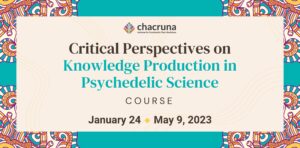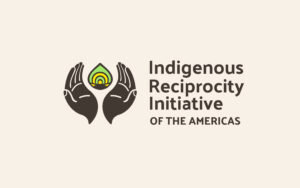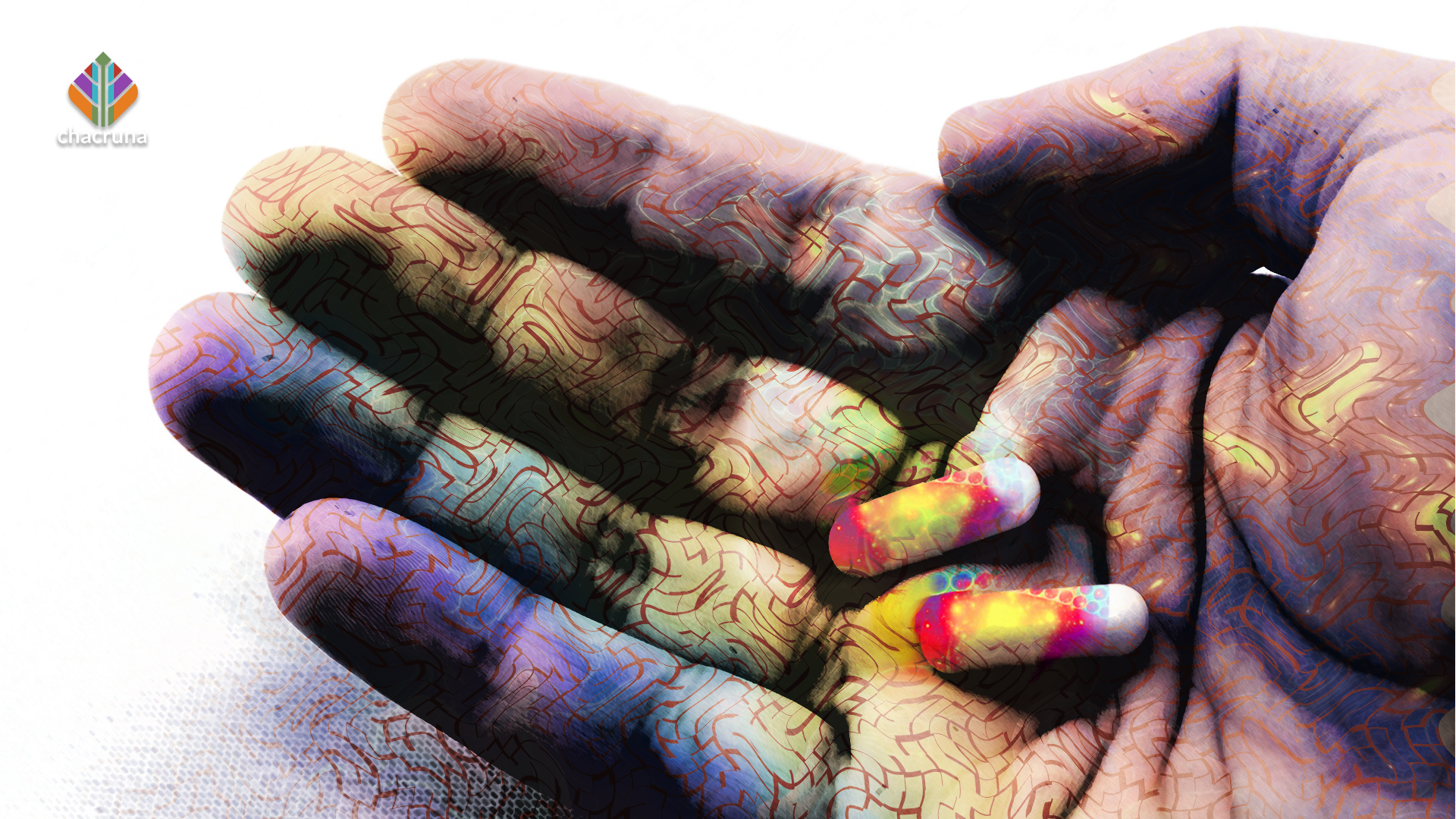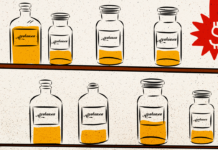- After 2024, the Scenario for Psychedelic Therapies Can Only Improve - January 16, 2025
- Symposium in Brazil Debates Psychedelics at a Political Crossroads - December 13, 2024
- Conference in Rio Defends Psychedelics in Public Health - December 11, 2024
Plans of patenting a standardized extract is bound to meet resistance from Indigenous peoples
Canadian company Filament Health is touching a hornet’s nest after announcing their development of an extract of the two plants used to brew ayahuasca. According to the Nagoya Protocol, an international treaty about biodiversity, the company should have previously obtained informed consent and should share benefits with Indigenous peoples. The company has not yet made clear how they will deal with these issues.
Ayahuasca is a psychedelic sacred beverage used by many Amazonian Indigenous peoples and by churches such as Santo Daime, Barquinha, and União do Vegetal (UDV). The tea is made with the shrub chacruna (Psychotria viridis) and the vine known in Brazil as cipó-mariri (Banisteriopsis caapi).
Ayahuasca is a psychedelic sacred beverage used by many Amazonian Indigenous peoples and by churches such as Santo Daime, Barquinha, and União do Vegetal (UDV).
P. viridis provides dimethyltryptamine (DMT), a psychoactive substance deemed to be the source of the characteristic visions (mirações, in Portuguese) and altered conscience induced by ayahuasca. B. caapi supplies the MAO enzyme inhibitors without which DMT would not reach the brain. The beverage can also elicit vomiting and diarrhea, considered in some rituals as a form of physical and spiritual cleansing.
News about Filament’s ayahuasca pills appeared on December 4, 2022 in the Canadian newspaper, Toronto Star. The Canadian startup bets on a natural products market for future psychedelic therapies, believing that some customers would prefer using plant-based rather than pharmacological formulations to launch “trips” that preliminary clinical research has been proving effective against depression and post-traumatic stress disorders, among other conditions.
Filament’s extracts contain not only DMT from chacruna and ß-carbolines (MAO inhibitors) from the vine, but other alkaloids and compounds in both plants, according to the firm. These extracts can also be produced in stable and verifiable doses, unlike the traditional tea, whose concentrations vary quite considerably depending on local recipes.
Other groups have manufactured so called “pharmahuasca,” capsules containing a synthetic combination of DMT and ß-carbolines such as harmine. The Canadian company’s proposal is different: to take advantage of an “entourage effect,” based on the notion that the beverage’s chemical complexity with its myriad of active substances has already proven to be safe and beneficial in ceremonial uses for centuries.

Join us for our “Critical Perspectives on Knowledge Production in Psychedelic Science” course.
A pioneering clinical trial with 29 volunteers at Brazil’s Federal University of Rio Grande do Norte (UFRN) has shown that ayahuasca provides immediate, sustainable, and beneficial effects for patients with treatment-resistant depression. In this case, the research group, led by Dráulio Barros de Araújo and Fernanda Palhano-Fontes, obtained the beverage from a Barquinha church in Ji-Paraná, a town in the Brazilian Amazon State of Rondônia.
Standardization would bring more safety to clinical tests and future therapies, if and when it is approved by regulatory agencies. Filament has also announced stable extracts of Psilocybe mushrooms containing the psychedelic compound psilocybin that has been approved for legal use in Oregon and Colorado states.
In order to get approval from the FDA, Filament has stablished a partnership for clinical testing with UCSF Translational Psychedelic Research (TrPR). Plans for clinical tests with mushrooms extracts are more advanced (phase II) than with ayahuasca extracts (phase I).
Brazilian anthropologist Beatriz Labate, executive director of Chacruna Institute, raises many ethical questions around Filament’s projects. “Has there been any previous and informed consent from Indigenous organizations? Is there a project for reciprocity and benefit sharing?”
“Has there been any previous and informed consent from Indigenous organizations? Is there a project for reciprocity and benefit sharing?”
Beatriz Labate
Labate points out that the recent 4th Indigenous Ayahuasca Conference has brought together 35 traditional groups and explicitly denounced ayahuasca patenting and associated commercial uses. According to the anthropologist, many questions remain unanswered:
“How much money has been set aside for sensitive and pressing issues, such as natural species conservation, cultural appropriation, justice, equity, extractivism, biopiracy? Where do the plants used in research come from? How to reconcile commercialization and medicalization with the plants’ sacred status?”
Benjamin Lightburn, Filament’s founder and CEO, maintains that the company has consulted with several local communities in Peru, but would not disclose details. “Our research needs to progress before these relationships can be formalized and made public. We recognize that there are many perspectives on the study of ayahuasca. The groups that we’ve communicated with believe in the healing power of the plants and that humanity stands to benefit from it,” Lightburn stated.
Lightburn claims that the company is working with parties in Brazil and Peru who are guiding the process of importing raw materials under the Nagoya Protocol. Given the early stage of the research, he says, the necessary consent and documentation from appropriate groups is already at hand. “In the future we fully intend for any commercial agreements to be Nagoya Protocol-compliant,” he commented.
Ayahuasca itself is not patentable, in principle, because there is no innovation worthy of intellectual property protection in an invention whose roots are buried in time immemorial.
Ayahuasca itself is not patentable, in principle, because there is no innovation worthy of intellectual property protection in an invention whose roots are buried in time immemorial. Filament could, in any event, seek protection for its methods of plant alkaloids extraction and stabilization, ones that Amazon Indigenous peoples were the pioneers in combining for spiritual journeys.
Other enterprises, respectful of traditional knowledge or anticipating ethical and legal challenges, try to prevent the clash of ancestral wisdom with intellectual property. Consider Journey Colab, for instance, who published a “patent pledge” for a synthetic form of mescaline under development for the treatment of alcohol abuse.
Journey Colab pledges not to enforce its patents against traditional and communal uses of Peyote and San Pedro cacti, natural sources of mescaline. It has also established a Reciprocity Trust that holds 10% of the Company’s founding equity designated to community stakeholders, including Indigenous communities, to increase equitable access to care and recruit employees and partnerships.
Lightburn said that Filament has reviewed, with interest, Journey’s patent pledge and is presently considering similar pledges of their own. “Of note perhaps is that 10% of the founding shares of Filament have been pledged to Filament Foundation which is a separate entity governed by independent directors whose goal is to advance non-profit actors in the natural psychedelic space,” said Lightburn.
Note:
This article was originally published in Portuguese by Folha de S.Paulo in the blog Virada Psicodélica, HERE.
Art by Mariom Luna.

Discover the Indigenous Reciprocity Initiative of the Americas
Take a minute to browse our stock:
Did you enjoy reading this article?
Please support Chacruna's work by donating to us. We are an independent organization and we offer free education and advocacy for psychedelic plant medicines. We are a team of dedicated volunteers!
Can you help Chacruna advance cultural understanding around these substances?














